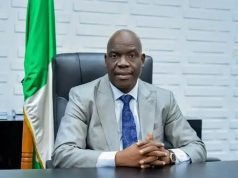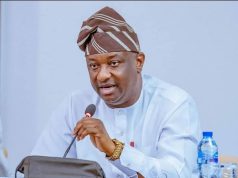By Mohammed Basah
In today’s world “Big Data” has become the major buzz, which sometimes gives the impression that the use of data in decision making at all levels is an entirely new phenomenon. A careful study of the evolution of human society however reveals that what is today known as development has always been directly proportional to the amount of information available to mankind and the ability to process such information at scale and speed.
Human societies have always been driven forward by learning new ways to interact with, exploit and enrich the enormous resources that nature has endowed in our world. Of all creations inhabiting the earth, man stands out in the unique ability to take in information, analyze and convert it, to decipher data patterns, towards making better decisions. By making better decisions, man is able to have a better understanding of the world in which he lives to preserve his race.
Man has gone through various stages of development, which are basically bookmarked by new discoveries that change the way we understand our world and the possibilities we can extract out of time and space. Man’s quest for leverage, the ability to do more with less, has always driven man to develop tools to guide his decision making.
In the early days of history, man’s quest for leverage led to the use of stone tools to till the land and hunt for game. Further exploration of stone led man to discover fire, from which man converted stones to iron tools, marking the end of the stone age and the beginning of the iron age. In the iron age man was able to fashion tools that enabled him to till more land in less time, and then the invention of the wheel led to animals being to be used to till land with agricultural production growing astronomically, and marking the agrarian age. The discovery of the compass made travelling across continents more reliable, leading to agricultural produce travelling far as well.
Excess agricultural produce led to wheel led man to create machine tools that standardized production at a greater scale and speed, than man could by hand, marking what has become known as the industrial revolution and industrial age. The industrial age gave birth to the computer age when, in the mid-20th century, the Integrated Circuit (IC) was invented following the invention of transistors. Integrated circuit led to the invention of electronic computers that had the capacity to process information and produce data in one generation at a faster rate than the rest of history combine.
In 1965, Intel co-founder and CEO Gordon Moore observed that the number of transistors in an IC would double every decade and in 1975 revised this position to say it would double every two years. This rapid growth in computing power led to the creation of super computers, then the internet and worldwide web, which effectively marked the internet age. The internet age has in turn put so much computing power literally in the hands of the average human being that the average smartphone user carries in his hand a device that is millions of times more powerful than the 4kilobyte computer used to power the first man to the moon.
This processing power has led to excess information leading to the current age of big data analytics, with the competitive advantage now being psychographic data analytics over demographic data. The competition is no longer about wanting to know how many people live in this city, so can I spread information about my products, services or ideas, in the hopes of catching a few. The competition is now about finding out how many people have a particular need so I can present a custom-made solution to their challenges. It is no longer about casting my net in the hopes of catching as much fish as possible, but it is now about going where the fish are. It is no longer about doing it this way because we have always done it this way, but doing it in the way that best captures the needs of the people now and moves them to a better future.
Today companies that are less than 20years old have upstaged competitors with decades and even centuries of experience. Jeff Bezos’ Amazon was written off by pundits early in its life because it was assumed it could never compete against bigger book sellers that basically controlled the distribution network, but today it is a behemoth that sells practically everything that human beings use, not just books. Hilton, a company with over a hundred years’ experience in hospitality is valued at about 39billion UD Dollars whereas Airbnb, which is less than 20years old and doesn’t own properties of its own is valued at over 90billion US Dollars. Whereas Uber, a company that is less than 15 years old, has a market capitalization of 92billion Dollars, just by connecting drivers who own cars with passengers who need a ride, Ford a much older manufacturer of automobiles is valued at less than 50billion US Dollars.
The most dominant companies of this era, are those that have found ways to serve large numbers of people with solutions based on an analytical understanding of human behaviour, AKA Data. Companies like Nike, and later Apple, Microsoft, Google and Facebook, have understood this fact for awhile now and the rest have to follow to find their way in a fast-changing world. The realm of politics has not been left out as the Barrack Obama campaign of 2008 marked the beginning of technology-based campaigning, which resonated with people beyond the usual barriers of partisanship, race and religion.
Being able to navigate the new age with multiple platforms and multiple gatekeepers across these platforms, which continue to change practically on a daily basis at a dizzying pace, requires a knowledge of what is constant in the equation: HUMAN BEHAVIOUR. It may have become a more precise science, where ads popup based on what internet users are thinking, but it has always been driven by human behaviour, which technology is only recently enabling us to understand at scale.
Having done it effectively, Barack Obama’s advise to the graduating class of 2020, to “build a community” is most apt, because human are social beings, that have always lived in communities at different levels. As Obama said in his speech to the US High School graduates of 2020 “no one does big things by themselves……………………………..we’re going to have to do it together”. Indeed if you are going to make a success of this world that is changing before us, you are going to have to learn how to collaborate effectively in order to compete effectively, by wielding the tools of data.
Mohammed Basah is a business development, communications and media consultant, with more than a decade’s experience.








